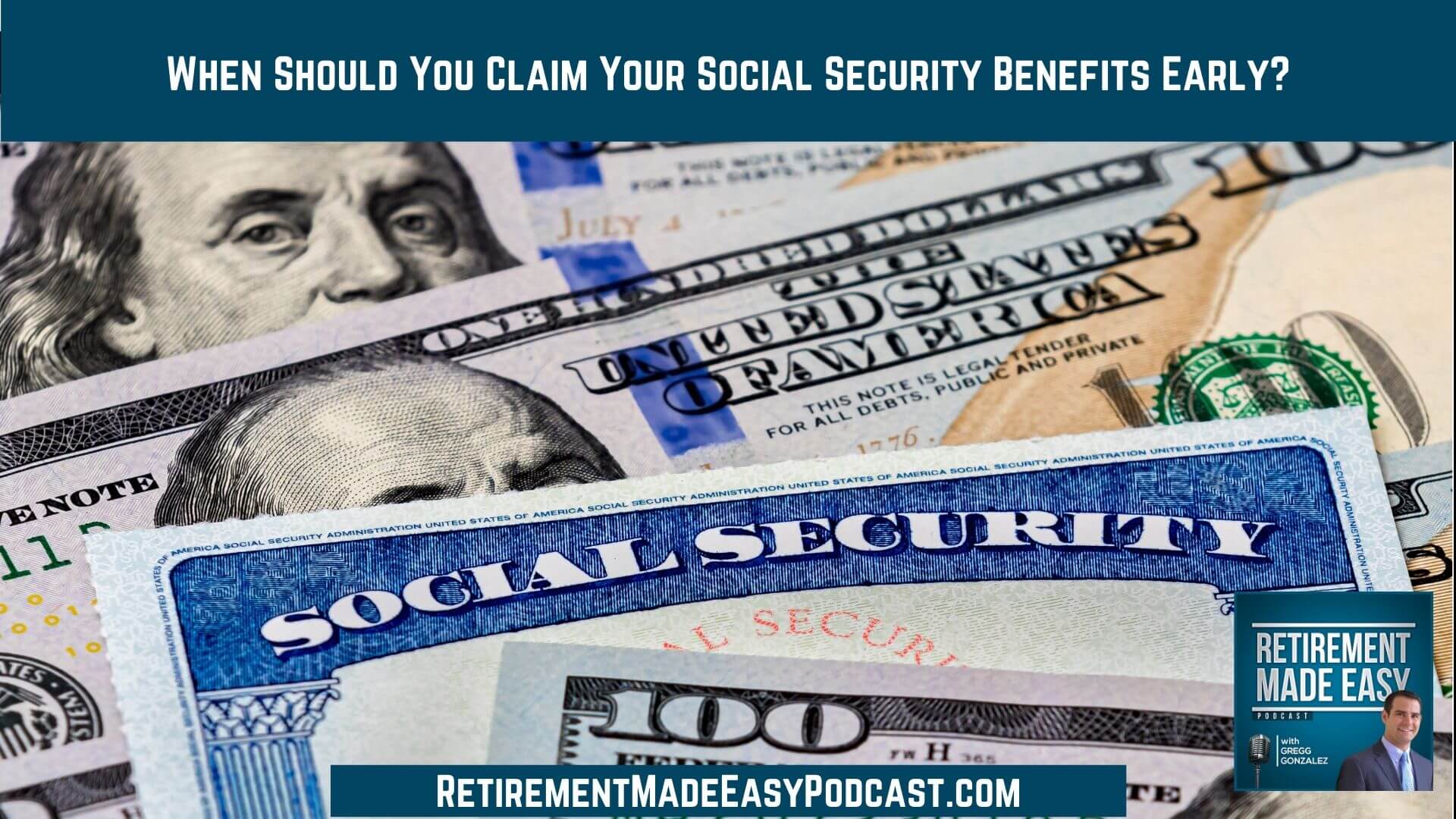
A client asked me, “In what scenario would it make sense to claim your social security benefit early (before full retirement age)?” Full retirement is somewhere between age 66 and 67, depending on when you were born. So in this episode of Retirement Made Easy, I’ll share a few scenarios in which it might make sense to take your benefits early. Listen to learn more!
You will want to hear this episode if you are interested in…
- [2:33] The basics of your social security benefit
- [4:40] Reason #1: You’re single and in poor health
- [8:07] Reason #2: Your spouse is significantly older
- [10:25] It all depends on your situation and resources
- [12:50] What falls under earned income?
The basics of your social security benefit
If you were born in the year 1960 or later, your full retirement age is 67. If you claim your benefit early, it will be a permanent reduction in the lifetime income of your social security. What does that mean? Social security can be thought of as a pension, where you get monthly income for the rest of your life. It’s based on the best 35 working years of your life when you make the highest income. If you have a spousal benefit, you get up to 50% of your spouse’s benefit. The longer you wait, the bigger it will be. But the amount you can receive will max out at 70.
If your spouse was a stay-at-home Mom, her spousal benefit may max out at her full retirement age, so it wouldn’t make sense to wait past that. The majority of people claim their benefit prior to hitting full retirement. Why? Sometimes it’s quite simple—they need the income. Or they don’t see the value in waiting and letting the benefit build. But when do I think you have reason to claim your benefit early?
Reason #1: You’re single and in poor health
Before your full retirement age, there are income limitations on social security benefits. Let’s say you’re 62 and you’re working but you want to claim your benefit. The SSA has a rule where if you make $18,960 a year, you can still collect your full social security benefit. For every $2 that you earn over $18,960, they reduce your benefit by $1. If you really need that money and you don’t have retirement accounts to supplement your lifestyle, it may make sense to claim your benefit early. What if your health is declining and you can’t work a 40-hour workweek? If I see a single person below their full retirement age and they have income below $18,960 and their health is poor, it makes sense to claim their benefit.
Reason #2: Your spouse is significantly older
Let’s say there’s a married couple where the wife is 62 and the husband is 74. I’m also assuming that the wife’s benefit is low and the husband’s is higher because he delayed his benefit. It may make sense for her to claim her benefit early. If he predeceases her, she’ll get his survivor benefit—the larger of the two benefits. If he lives until 85, that’s only 11 more years.
The survivor benefit will provide a lot of income. How does the survivor benefit work? The rule of thumb is that when the spouse with the higher income passes away, the remaining spouse continues with the higher benefit. So you want to delay the retirement of whichever spouse has the higher social security benefit.
What falls under earned income?
If you claim your benefit early, the $18,960 income limit is earned income (W2 or 1099 income). It does NOT include income from a pension, IRA, 401k, rental income, stock options, dividends, etc. You would not believe how many people delay their social security benefits because they think they’re over that limit.
Have questions? Head on over to RetirementMadeEasyPodcast.com and send me a message!
Resources & People Mentioned
Connect With Gregg Gonzalez
- Email at: Gregg@RetireSTL.com
- Podcast: https://RetirementMadeEasyPodcast.com
- Website: https://StLouisFinancialAdvisor.com
- Follow Gregg on LinkedIn
- Follow Gregg on Facebook
- Follow Gregg on YouTube



